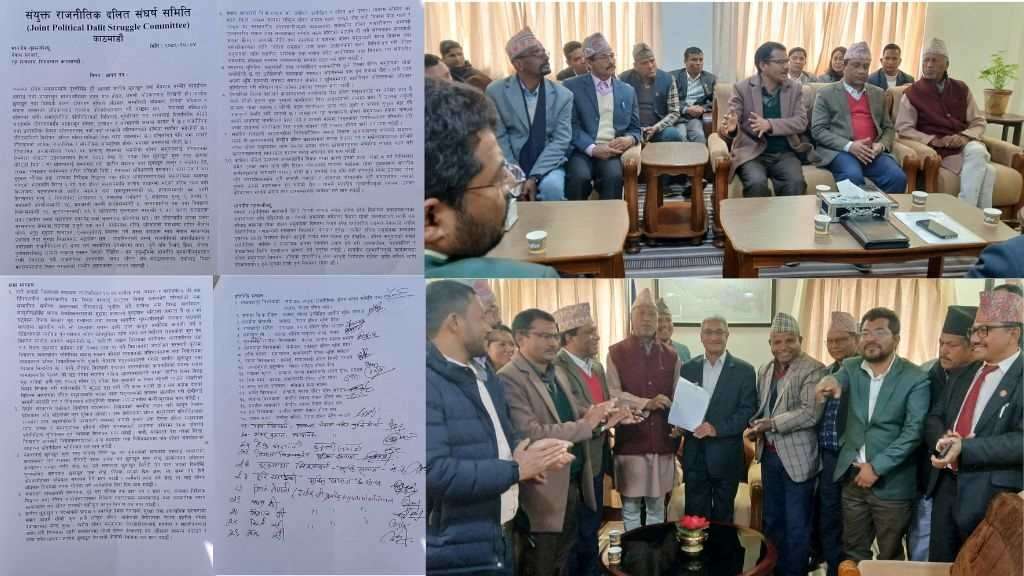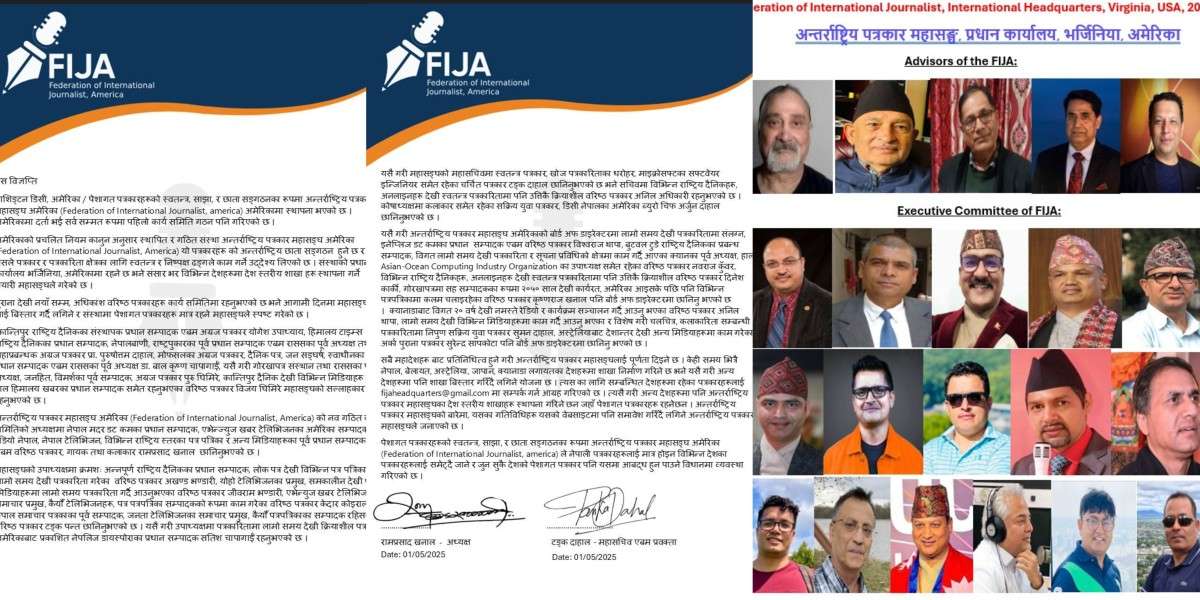Government-issued identification cards have undergone a significant evolution, transitioning from traditional paper documents used for single identification purposes to modernized digital identity cards equipped with smart chips. Nepal, too, has been embracing this transition, shifting from paper-based ID cards to smart digital identity cards. The constitution of Nepal includes a State Policy that emphasizes the development of an integrated national identity management information system. This system aims to manage comprehensive citizen information and data in an integrated manner, linking it to the services, and facilities provided by the State and with national development plans [Article 51(f)(7)].
Prior to the current constitutional arrangement, the Nepal government had officially declared in its 2009/10 annual plan and policy that a biometric smart card with a photo would be issued to all Nepali citizens as a national identity card, serving as an electoral document and allowing access to social security benefits. The government also proposed the establishment of a dedicated central entity to oversee the implementation of this card system, register and archive personal records, and execute social security programs [Clause 50, Public Statement on Income and Expenditure for FY 2009-10].
Four years later, in its public statement on income and expenditure for the FY 2013-14, the government reiterated its commitment to issuing a national identity card in the form of a biometric smart card with a unique number to all Nepali citizens. It announced that a pilot project for distributing such identity cards would be conducted in one of the election constituencies of the country in the upcoming fiscal year [Clause 326].
Recent media reports indicate that approximately 12.2 million service users have registered their information for the NID cards. However, the number of printed cards stands at only 1.3 million, with a mere 300,000 cards distributed thus far. This slow rate of adoption contrasts with the government’s ambitious objective of distributing NID cards to two million citizens in the upcoming fiscal year and to all Nepali citizens within a two-year timeframe.
Absence of public discourse and clarity
Despite the government’s perceived prioritization, citizens view the National Identity Card as yet another addition to the already extensive collection of government-issued identity cards, which includes the Citizenship Card, Voter ID Card, Driving License, Vehicle Registration Card, Senior Citizenship ID Card, Unemployment ID Card, Disability ID Card, Dalit Card, PAN Card, Single Women ID Card, Indigenous Nationalities Card, and more. Many citizens, just like the Prime Minister, question the purpose of the national ID card since it does not replace existing identification cards or citizenship certificates. However, the government’s mandate to provide the unique National ID Number when applying for a passport has compelled people to endure long queues lasting days and weeks to obtain this number.
The necessity, cost implications, and potential economic, social, and political impacts of a national ID system have received limited attention in public and political discussions. – Photo Text
The necessity, cost implications, and potential economic, social, and political impacts of a national ID system have received limited attention in public and political discussions. The government initiated the program years before the issue reached the parliament. For instance, the National ID Management Center was established on July 18, 2010, which later merged with the Central Civil Registration Department on October 14, 2018, forming the Department of National ID and Civil Registration. However, it took a decade for the parliament to adopt the National Identity Card and Civil Registration Act in 2020, with minimal deliberation. Our parliamentary representatives neglected to raise pertinent questions or engage in public discourse regarding this significant matter during the adoption of the Act.
Similarly, civil society, including the media, appears apathetic towards raising pertinent questions or fostering public discourse regarding the potential ramifications of the National ID (NID) system on citizens’ rights and freedoms. This includes the perpetuation of exclusion for marginalized populations who lack citizenship, concerns about the security of individuals’ personally identifiable demographic and biometric data, and the potential access by third parties to personal information, as well as the possibility of personal data being used for purposes beyond its original intent.
Unfortunately, there has been a notable absence of a comprehensive evaluation to determine the potential impact of the National Identity Card (NID) system on human rights and the economy. Additionally, there is a concerning lack of assessment regarding the costs involved in implementing the NID system and the projected benefits it may yield. This lack of evaluation raises significant concerns about the effectiveness, efficiency, and potential consequences of the NID system on human rights and the overall economy.
Opaque system
The NID system in Nepal suffers from a notable lack of transparency and openness. The public has not been informed about the extent of public resources expended on the project thus far, nor the funding required for its complete functionality. Furthermore, the department has failed to comply with the self-disclosure requirement stipulated in the Right to Information Act, which mandates the regular publication of specified data, including financial details, every three months. To date, a single disclosure has been made in October 2020. This lack of transparency raises concerns about accountability and hinders public oversight of the NID system.
The recent controversy surrounding the adoption of the ‘Citizen Details Verification and Inter-System Affiliation Procedure 2022’ by former Home Minister and Deputy Prime Minister Rabi Lamichhane, along with the awarding of the contract to a sole bidding company within a seven-day tender notice, in violation of the Procurement Act, exemplifies a system driven by arbitrary decision-making. In response to public outcry, the cabinet has repealed the disputed Procedure, and a committee has been established to investigate the issue. To ensure transparency and accountability, it is crucial for the government to publicly disclose the committee’s findings.
The ambiguities
The regulation and implementation of the NID system in Nepal exhibit various conceptual and procedural ambiguities and discrepancies. While the National Identity Card and Civil Registration Act [Section 4, 9(4)] stipulates that individuals eligible for citizenship, but who have not yet acquired it, are entitled to obtain the NID, the current implementation deviates from this provision. The mandatory requirement of citizenship certificate for obtaining the NID perpetuates the exclusion of millions who remain eligible for citizenship but have not been able to obtain it. A genuine implementation of the provision could have made the NID a tool for inclusion, addressing some of the challenges associated with the citizenship requirement.
Similarly, the legislation grants public and private agencies access to the NID management information system [Section 30] and the authority to process and analyze data stored in the system [Section 33], without adequate safeguards. This lack of necessary safeguards raises significant concerns among citizens regarding the privacy and protection of their personally identifiable and sensitive data, especially in light of the increasing number of attacks on government data systems and applications. Additionally, the provision in Section 33 contradicts the provisions outlined in the Individual Privacy Act, 2018, which prohibits public bodies from processing or allowing the processing of any sensitive personal information under their responsibility or control [Section 27, Individual Privacy Act].
Way forward
In this context, it is recommended that the government immediately undertake a thorough assessment to determine the potential impact of the NID system on human rights, the economy, and society as a whole. This assessment should also evaluate the costs involved in establishing the system and project the expected benefits. Further, it is crucial to promote public and political discussions regarding the need for the NID system, its purpose, and its benefits. The government should engage with civil society organizations, media, and the general public to address concerns, clarify misconceptions, and gather feedback on the system’s implementation.
The government must ensure transparency in the NID system by making public the amount of public resources expended so far and the financial requirements for its full functionality. Compliance with the Right to Information Act, including regular disclosure of specified data, should be enforced. The findings of the committee investigating access to citizens’ personal data by private companies should be made public to ensure transparency and accountability.
The National Identity Card and Civil Registration Act should be reviewed to address conceptual and procedural ambiguities. The provision allowing submission of alternative identification documents, rather than a citizenship card, for obtaining the NID should be implemented to promote inclusion. Safeguards for privacy and protection of personally identifiable and sensitive data should be strengthened, ensuring compliance with relevant legislation, such as the Individual Privacy Act.
By implementing these recommendations, the government can address the existing shortcomings, build public trust, and ensure that the NID system serves its intended purpose effectively while safeguarding citizens’ rights and privacy.
Advocate Santosh Sigdel is Co-Founder and Executive Director of Digital Rights Nepal and can be reached in Twitter @sigdelsantosh













Conversation